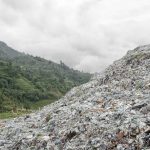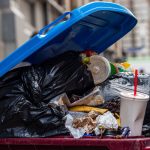Plastic Straw Pollution Why Skip the Straw Matters
February 27, 2020
Plastic straw pollution is an epidemic. In 2017, A group of students at Whitehall Middle School in Whitehall, MI, along with their advisor, Susan Tate, known as “The Coral Keepers“ founded National Skip the Straw Day to encourage Americans to give up their plastic straw habit and help spread awareness about the damage caused by disposable single-use plastics. Plastic waste is an epidemic and initiatives like “Skip the Straw Day” are an opportunity for restaurants to show their consumers that they are part of the solution and not a part of the problem.
Below are some single-use plastic straws facts and ocean plastics statistics that really show how bad the plastic problem has gotten:
Plastic Straws Pollution:
- The United States uses millions of single-use plastic straws a day.
- Single-use plastic straws are among the top 10 contributors to plastic marine debris across the globe.
- Nearly 7.5 million plastic straws were found on U.S. shorelines during a five-year cleanup research project. Extrapolated globally, that is 437 million to 8.3 billion plastic straws on the world’s coastlines.
- Currently, plastic straws make up about 99% of the $3 billion global drinking-straw market.
- Most recycling machines aren’t capable of recycling straws, given their size.
Oceans Plastic Pollution:
- Only 9% of plastics are recycled. It has remained at 9% since 2012 in spite of increased recycling efforts and education.
- Approximately 8.8 million tons of plastic pollution flows into the oceans each year, an amount expected to double by 2025.
- Estimates for how long plastic endures range from 450 years to forever.
- The rate of plastics production growth has increased by 620% since 1975.
- Nearly half of the plastic produced is for single-use.
- Plastics can be found in every marine habitat on Earth, from polar ice to the deepest trenches of the ocean.
- By 2050, plastic trash will outweigh fish.
- Plastics do not biodegrade but break down into smaller pieces of microplastic that have made its way into our groundwater and our food supply.
The REAL problem with Plastics:
Just as easily as plastics are finding their way into our oceans, research has shown that microplastics are in our drinking water, our food supply, and our bodies. This is especially troubling considering that the United Nations recently said that plastic-associated chemicals in food and our groundwater may present a serious risk to human health. Exposure to certain chemicals in plastics has been linked to cancers, birth defects, impaired immunity, endocrine disruption, and other ailments.
Quest understands that as a restaurant chain, the need for single-use plastics is nearly inevitable. Consumers demand convenience at the same time they want eco-friendly options. It’s a catch-22. BUT, there are alternative solutions that are readily available and eco-friendly. Contact us today and let’s get started on solving the plastic crisis.









